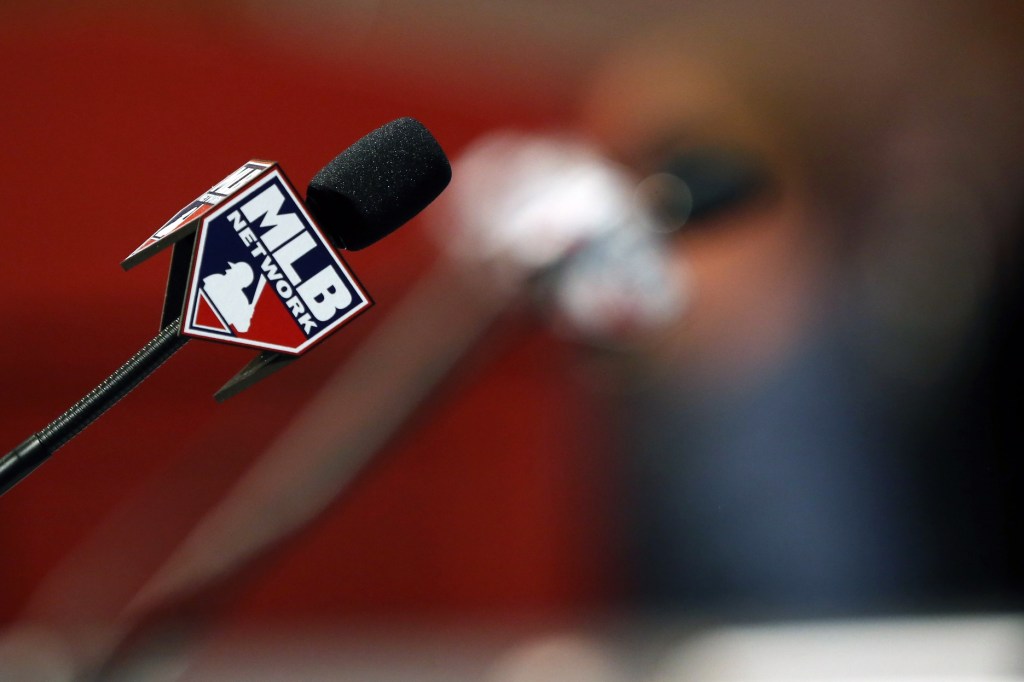On Aug. 6, Polymarket Sports declared on social media that the WNBA had put in place a “no bag policy” for “tonight’s WNBA game” to stem the tide of dildos being thrown on the court.
The only problem: The post appeared to be entirely made up. The only WNBA game that night was at the Golden State Valkyries, and the team told Front Office Sports they made no such policy.
Polymarket isn’t the only prediction market or betting company with an outlandish and sometimes offensive online presence.
Last week, a “paid affiliate” account of Kalshi posted, “all 55 million visa holders in the U.S. are being reviewed for deportable violations,” and when another user responded “deport all Indians,” the Kalshi affiliate replied with a finger emoji pointing up at that comment, signaling agreement.
Kalshi quickly cut ties with that account, which was part of a “badge” program that places Kalshi’s logo next to the handle of influential accounts, saying, “we have zero tolerance for this behavior.”
The next day, Kalshi sent out its 2025 college football preview newsletter with an AI-generated image of Joe Biden in a diaper.
Polymarket’s false post about the WNBA is still up, and it has plenty of other controversial posts, such as one six days ago speculating on whom Chargers quarterback Justin Herbert is “allegedly fuckin.”
The incidents show how prediction markets exist in an environment with little to no oversight. As gambling analyst Dustin Gouker put it: “If FanDuel or DraftKings had an account with their brand on the Twitter handle agreeing with Nazi sentiments, we might be talking about licenses being lost.”
Kalshi is not at risk of losing sports betting licenses, because it has no sports betting licenses. Instead, the company’s event contracts—which allow users to “trade” on the outcome of future events—are available in all 50 states after it self-certified with the Commodity Futures Trading Commission, which regulates the trading of commodities like grains and oil, but also sports when considered in a trading context.
Kalshi doesn’t operate like a traditional sportsbook, which would require approval from regulators in each state it operates. That means it’s free to be as provocative as it wants, unlike media brand Barstool Sports, whose history of offensive content gave state gambling regulators pause and ultimately led to betting company Penn Entertainment selling the company back to founder Dave Portnoy for $1.
Regulators in at least seven states have pushed back against Kalshi but for entirely separate reasons: They say the company should be regulated like a sportsbook.
Kalshi has in turn sued in Nevada, New Jersey, and Maryland. After scoring early victories in Nevada and New Jersey, it suffered its first legal setback in Maryland. Kalshi maintains it falls under the “exclusive” jurisdiction of the CFTC, and the company has a lot of current political support. It lists Donald Trump Jr., the president’s son, as a “strategic advisor.”
Polymarket, meanwhile, is not currently legal in the U.S. and has leaned in to provocation more directly, with examples including one post showing an AI-generated image of Luka Dončić if he were much heavier, or another describing a Shedeur Sanders preseason performance as “ass.”
The company recently escaped a federal probe that centered on whether it was accepting trades from U.S.-based users. It is primed to reenter the U.S. market after this summer’s acquisition of the QCX exchange. The company has been running ads suggesting it will be available in the U.S. any day now, and reportedly its reentry could take place within the next two weeks.
For now, it’s still an unregulated exchange that has promoted markets on whether a dildo will be thrown at a WNBA game.
Kalshi spokesperson Sara Slane recently told FOS that Polymarket’s dildo markets are “completely unacceptable, disgusting, and appalling.”
“It’s beyond frustrating to sit on the sidelines and see stuff like that happen,” she says. “It paints us—a legal, federally regulated exchange—with a terrible paintbrush.”
Melinda Roth, a professor at Washington and Lee University School of Law, tells FOS there are much bigger questions at play in prediction markets. For one, there’s the issue of potential market manipulation.
“The bigger story isn’t about sex toys or rogue affiliates—it’s about integrity,” Roth says. “The issue is, can you offer a market and then be able to manipulate that market by sending crypto bros to throw the toys onto the court?”
Meanwhile, Roth isn’t sure the states will be able to wrangle regulation of prediction markets away from the federal government. Both Kalshi and Polymarket offer many event contracts that have nothing to do with sports, such as what words President Trump will say when he meets with the president of South Korea or whether MrBeast will raise $40 million for clean water by Aug. 31.
If it was determined that sports event contracts must be regulated on a state-by-state basis, that could mean these companies’ offerings would need to be carved up—with non-sports event contracts regulated by the CFTC but sports event contracts regulated on a state-by-state basis.
“It’s really strange to think about having a CFTC-regulated exchange that’s legal for some products but not others,” Roth says. “Even if 70% of the markets are sports, you still have economic and political contracts that fall outside state oversight—and all of that costs real money to defend.”
The CFTC and Polymarket did not immediately respond to requests for comment.







